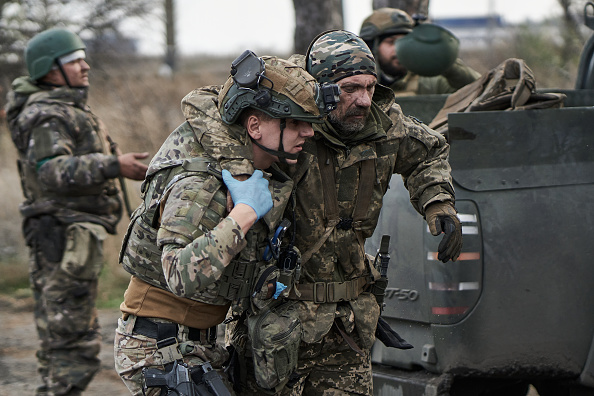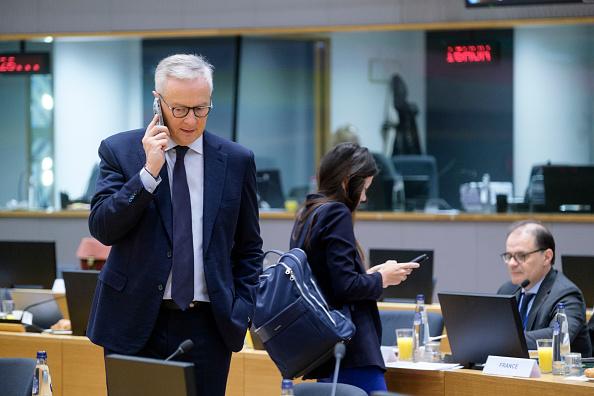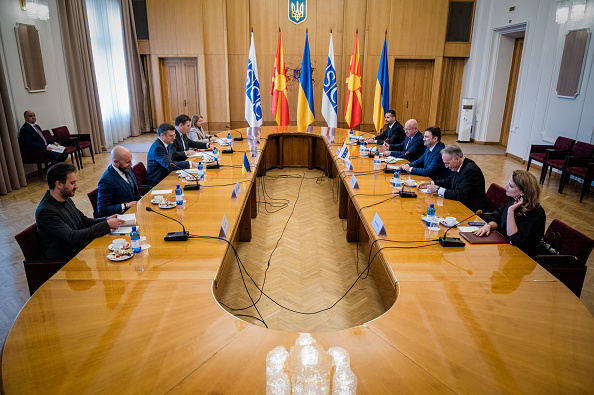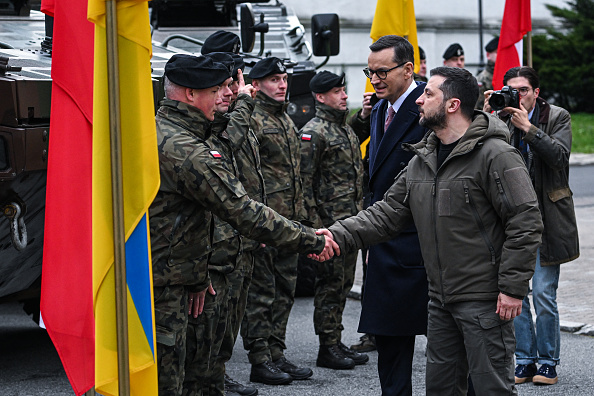The European Union’s budget priorities are shifting rapidly away from solar cells to bullets as the Ukraine conflict replaces the stalled Green Deal in leaders’ concerns.
In negotiations underway with the European Parliament, Member States have whittled a €10 billion climate fund down to €1.5 billion and aimed it at defence instead.
The European Commission had pushed for a €10 billion “strategic technologies for Europe platform” (STEP) to invest in projects such as low-carbon technology but the EU currently faces a strong backlash from Member States against EC President Ursula von der Leyen’s ambitious climate aims.
The European Council was due to meet on February 1 to discuss STEP’s fate, with bloc leaders already having decided the fund can only be used for defence-related projects.
Furthermore, EU chiefs also call for the European Investment Bank (EIB), the world’s largest multilateral lender formerly describing itself as the “climate bank”, to be able to invest in defence projects alongside its usual portfolio.
The changed emphasis in the EU’s investing “is also very much in line with the post-Davos mood”, Alina Kudina-Lundstrom, a London-based economist and international investment consultant, told Brussels Signal.
The shift was “very timely”, she added.
The European Council is now negotiating with the European Parliament, which still wants to increase funding for climate tech.
Founded in 1958 and the world’s largest multilateral lender, the EIB has pledged substantial sums for “investments that will boost European security”. In January, it also announced a €175 million “Defence Equity Facility” offering venture capital to start-ups and small businesses exploring “innovative defence technology”.
The EIB’s future defence strategy formed part of discussions in late 2023 around selecting the bank’s new leader. Spain’s former deputy prime minister Nadia Calviño became EIB President on January 1, after defeating EC Executive Vice-President Margrethe Vestager who had also sought the job.
The EIB is currently banned from investments in core areas of defence (apart from “dual-use” items such as drones), including military equipment and weapons, as well as in other areas such as gambling and the sex industry.
Among voices calling to remove that ban is former Finnish prime minister Alex Stubb, now a Finland presidential hopeful, who has called for the EIB to change its statutes to be able to fund arms for Ukraine.
Thierry Breton, internal market Commissioner, has also urged the EIB to “support the EU’s policies” including resisting Russian aggression in Ukraine.
EIB Vice-President Kris Peeters said the bank “is in close contact” with NATO to co-operate more closely with the NATO Innovation Fund, promising new joint announcements in February or March.
Alongside that, Belgium’s finance minister Vincent Van Peteghem has argued the EIB should generally take on “riskier” projects to help attract more private investors.
The 27 EU finance ministers who serve as the EIB’s governors have so far been cautious about changing the bank’s statutes to permit it to make more core investments in defence, citing worries about jeopardising its AAA credit rating.
Peeters argued for the EIB to continue to invest only in dual-use technologies, saying investors such as pension funds and asset managers had made fewer defence investments following the start of Russia’s war on Ukraine.





